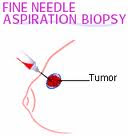By Wesley J. Smith, J.D., Special Consultant to the CBC
 Thar’s gold in them thar embryos! As a consequence, as I have repeatedly written about, a great drive is afoot to redefine the term and reduce the status of these earliest human beings so that they can be used instrumentally with impunity. Perhaps toward this end, California has a pending regulation that would treat embryos as if they were mere diagnostic specimens that you give to your doctor at a physical or in a biopsy. The American College of Embryology is not amused. Here’s the press release (no link. my emphasis):
Thar’s gold in them thar embryos! As a consequence, as I have repeatedly written about, a great drive is afoot to redefine the term and reduce the status of these earliest human beings so that they can be used instrumentally with impunity. Perhaps toward this end, California has a pending regulation that would treat embryos as if they were mere diagnostic specimens that you give to your doctor at a physical or in a biopsy. The American College of Embryology is not amused. Here’s the press release (no link. my emphasis):
ACE opposes ruling DH-08-001 pending in California, which aims to regulate human embryos as diagnostic specimens. ACE asserts that within diagnostic laboratories that deal with human specimens, there are clear pre-analytical, analytical and post-analytical phases. At the end of the process the specimen is discarded as biological waste or stored, but in either case, the specimen is rendered non-viable. Diagnostic laboratory quality is measured in accuracy, sensitivity and specificity etc, according to the federal standards set by CLIA 88.
On the other hand, human embryos do not become specimens at any stage of the process in the embryology laboratory. On the contrary, embryos are created with the intent to be transferred into the uterus to achieve pregnancy and all efforts are made to keep them viable. Embryology laboratory quality is measured in the percentage of embryos becoming live-born children.
Therefore, the similarity between a diagnostic testing laboratory and an embryology laboratory is only in the word “laboratory”, which makes the matter confusing. ACE asserts that the term “Embryology Facility” is much more appropriate. Consistent with the above, the proposal currently under consideration fails to identify a single embryology laboratory-specific diagnostic test.
Therefore, ACE believes that standards developed for diagnostic specimen testing are not applicable to the practice of embryology. ACE takes the stance that embryology should not be regulated as either a diagnostic laboratory procedure or a medical practice. Instead, the unique position of an embryology laboratory has to be recognized and a distinctive set of regulations must be developed specifically for this inimitable field.
The organization believes that regulations should be created that are specific to the field. I don’t know what they have in mind and so won’t comment about that, but the ACE is correct — factually and ethically, embryos are not the same thing as tissues tested by pathologists. Stating otherwise has the effect — and I suspect, the intent — of reducing embryos to nothing more than a tissue sample, for which far different ethical rules would apply.
Let’s hope the California bureaucrats pay heed to the embryologists. Whatever rules we create for nascent humans, should recognize that they are distinct human organisms. They are not blood cells or pieces of tumor tissue.
Author Profile
Latest entries
 Sperm DonationMarch 15, 2022Venus Rising with Edward Saulig: Reflections of a Sperm Donor
Sperm DonationMarch 15, 2022Venus Rising with Edward Saulig: Reflections of a Sperm Donor BioethicsMarch 13, 2022Dr. C. Ben Mitchell: 2022 Ramsey Award Winner
BioethicsMarch 13, 2022Dr. C. Ben Mitchell: 2022 Ramsey Award Winner #BigFertilityMarch 10, 2022Documentary Explores One Woman’s Journey through Egg Donation
#BigFertilityMarch 10, 2022Documentary Explores One Woman’s Journey through Egg Donation BioethicsMarch 9, 2022Questioning the “Science” of the Gender Industry
BioethicsMarch 9, 2022Questioning the “Science” of the Gender Industry

